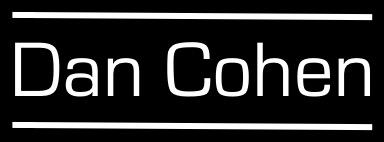 Just announced is the settlement of the class action lawsuit that the Authors Guild, the Association of American Publishers and individual authors and publishers filed against Google for its Book Search program, which has been digitizing millions of books from libraries. (Hard to believe, but the lawsuit was first covered on this blog all the way back in November 2005.) Undoubtedly this agreement is a critical one not only for Google and the authors and publishers, but for all of us in academia and others who care about the present and future of learning and scholarship.
Just announced is the settlement of the class action lawsuit that the Authors Guild, the Association of American Publishers and individual authors and publishers filed against Google for its Book Search program, which has been digitizing millions of books from libraries. (Hard to believe, but the lawsuit was first covered on this blog all the way back in November 2005.) Undoubtedly this agreement is a critical one not only for Google and the authors and publishers, but for all of us in academia and others who care about the present and future of learning and scholarship.
It will obviously take some time to digest this agreement; indeed, the Google post on it is fairly sketchy and we still need to hear details, such as the cost structure for full access the agreement now provides for. But my first impressions of some key points:
The agreement really focuses on in-copyright but out-of-print books. That is, books that can’t normally be copied but also can’t be purchased anywhere. Highlighting these books (which are numerous; most academic books, e.g., are out-of-print and have virtually no market) was smart for Google since it seems to provide value without stepping on publishers’ toes.
A second (also smart, but probably more controversial) focus is on access to the Google Books collection via libraries:
We’ll also be offering libraries, universities and other organizations the ability to purchase institutional subscriptions, which will give users access to the complete text of millions of titles while compensating authors and publishers for the service. Students and researchers will have access to an electronic library that combines the collections from many of the top universities across the country. Public and university libraries in the U.S. will also be able to offer terminals where readers can access the full text of millions of out-of-print books for free.
Again, we need to hear more details about this part of the agreement. We also need to begin thinking about how this will impact libraries, e.g., in terms of their own book acquisition plans and their subscriptions to other online databases.
Finally, and perhaps most interesting and surprising to those of us in the digital humanities, is an all-too-brief mention of computational access to these millions of books:
In addition to the institutional subscriptions and the free public access terminals, the agreement also creates opportunities for researchers to study the millions of volumes in the Book Search index. Academics will be able to apply through an institution to run computational queries through the index without actually reading individual books.
For years in this space I have been arguing for the necessity of such access (first envisioned, to give due credit, by Cliff Lynch of CNI). Inside Google they have methods for querying and analyzing these books that we academics could greatly benefit from, and that could enable new kinds of digital scholarship.
Update: The Association of American Publishers now has a page answering frequently asked questions about the agreement (have we had time to ask?).

Leave a Reply
You must be logged in to post a comment.